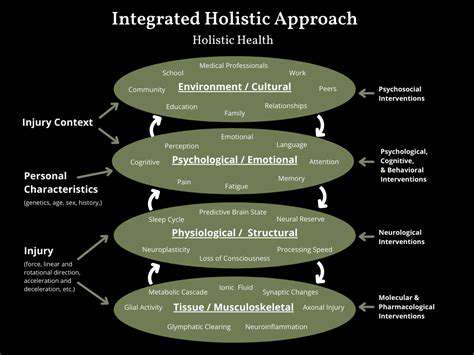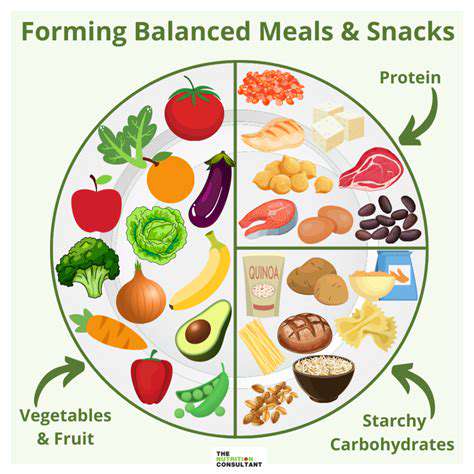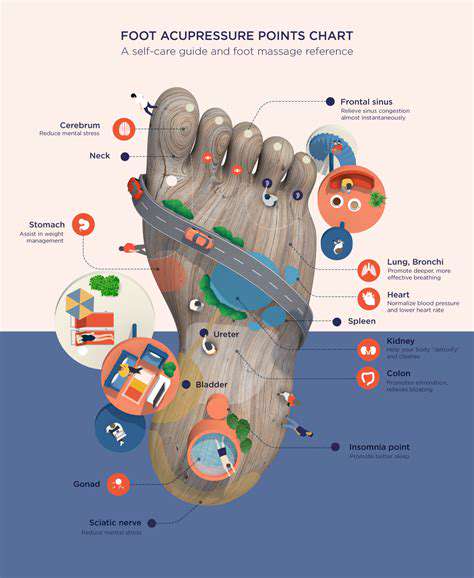Food and Mood: Nurturing Your Mental Well being
The Power of Antioxidants
Our brains face constant threats from unstable molecules called free radicals. These troublemakers can damage cells over time, potentially accelerating mental decline. Fortunately, nature provides powerful defenders in the form of antioxidant compounds.
Vibrant berries, dark greens like kale and spinach, and bright citrus fruits offer an array of these protective substances. Eating a rainbow of plant foods gives our brains multiple layers of defense against oxidative stress, helping preserve cognitive function as we age.
Essential Vitamins and Minerals
Certain micronutrients play outsized roles in brain health. Vitamin B12, for instance, serves dual purposes - it's crucial for proper nerve signaling and helps red blood cells deliver oxygen to brain tissue. Without enough B12, people often experience mental fog, exhaustion, and neurological symptoms.
Other minerals work behind the scenes to keep our minds sharp. Iron ensures our brains get sufficient oxygen, while zinc participates in creating the neurotransmitters that govern our thoughts and moods. Getting these nutrients through food or supplements can make a measurable difference in cognitive performance.
Hydration and Brain Performance
Water does more than quench thirst - it's the medium through which our brains receive nutrients and eliminate waste. Even mild dehydration can impair concentration, short-term memory, and decision-making abilities. The brain's sensitivity to fluid balance explains why drinking enough water throughout the day enhances mental clarity.
Mindful Dietary Choices
Every food choice either supports or challenges our brain health. Swapping processed snacks for whole foods like fresh produce, quality proteins, and intact grains provides the nutritional foundation for peak mental performance. These nutrient-dense options supply the raw materials our brains need to function optimally while avoiding the inflammatory effects of refined ingredients.
The Role of Healthy Fats
It's fascinating to realize that about 60% of our brain's dry weight consists of fats. The types of fats we consume directly influence cognitive abilities. Omega-3s from seafood, flax, and walnuts help maintain flexible cell membranes and support efficient nerve signaling.
Including these beneficial fats in regular meals does more than support brain structure - it actively enhances how we think, learn, and remember. Their anti-inflammatory properties may also help protect against age-related cognitive decline.
The Impact of Processed Foods and Sugar on Mood

The Prevalence and Consumption of Processed Foods
Modern grocery shelves tell a revealing story - brightly packaged, long-lasting food products dominate the landscape. These engineered foods, typically loaded with refined sugars, modified fats, and flavor enhancers, have reshaped eating patterns worldwide. Their convenience appeals to time-pressed consumers, while sophisticated marketing makes them seem like smart choices despite their nutritional shortcomings.
The transformation from whole foods to processed alternatives didn't happen overnight. Changing work patterns, shifting family dynamics, and economic factors all contributed to this dietary evolution. The immediate gratification these products provide often overshadows their long-term health consequences, creating eating habits that can be difficult to change.
Health Implications of Excessive Processed Food Intake
Mounting research reveals troubling connections between processed food consumption and declining health. Regular intake of these nutritionally depleted products correlates strongly with developing serious conditions like cardiovascular disease, metabolic disorders, and certain malignancies. The problematic ingredients in these foods - excessive sodium, unhealthy fats, and refined carbohydrates - create a perfect storm for chronic illness.
The mood effects are equally concerning. Blood sugar spikes from sugary processed foods often lead to energy crashes and irritability. Many artificial additives in these products may disrupt delicate neurotransmitter balances, potentially contributing to anxiety and depression. These mental health impacts compound the physical health risks, creating a comprehensive threat to wellbeing.
Addressing this public health challenge requires multiple approaches. Nutrition education must counter pervasive food marketing, while policy changes could make healthier options more accessible. The solution lies in helping people understand how their food choices affect both body and mind, empowering them to make better decisions despite the convenience of processed alternatives.











